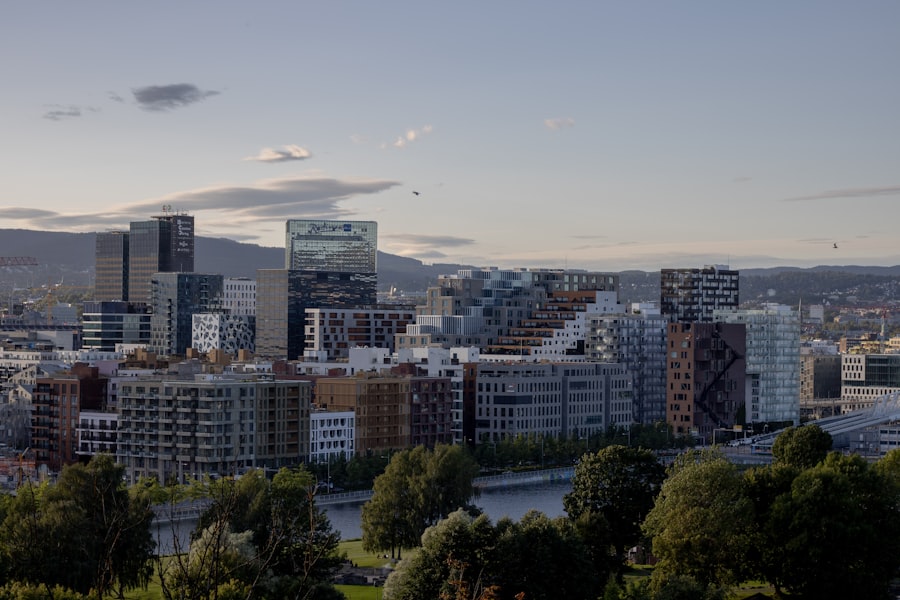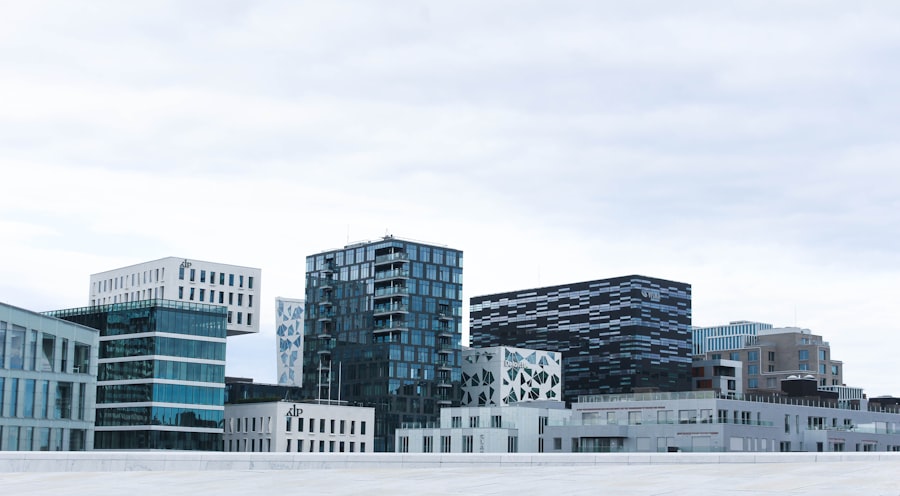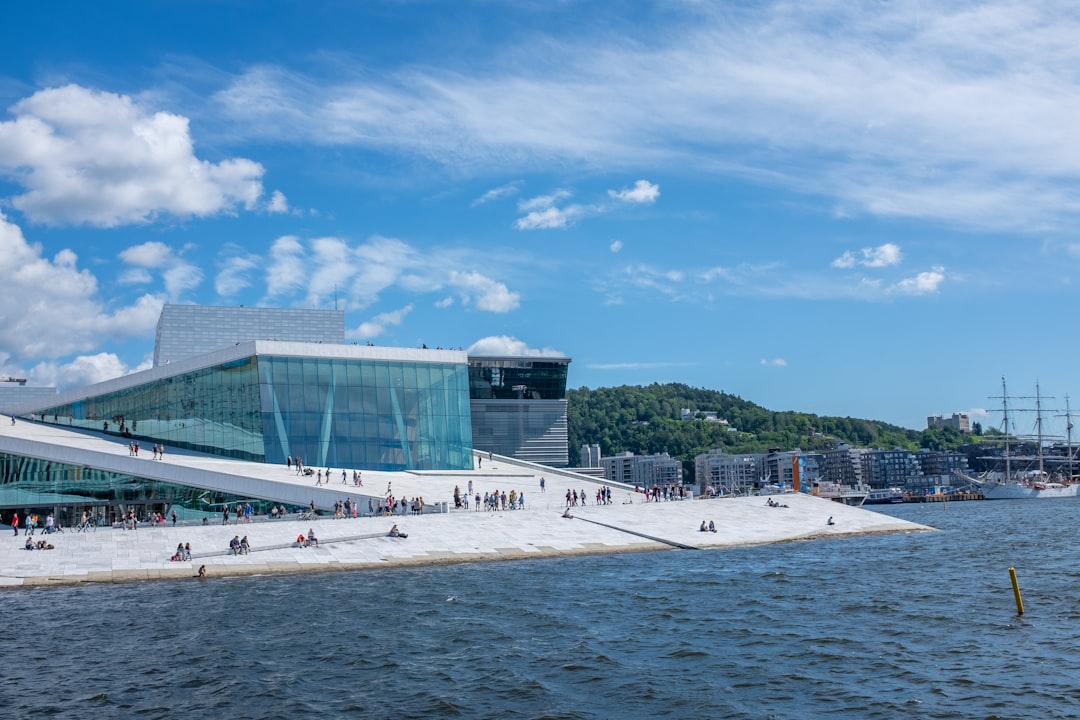Norway has established itself as a prominent destination for higher education, attracting students from around the globe. Renowned for its high academic standards, innovative research, and commitment to sustainability, the Norwegian education system offers a unique blend of quality and accessibility. The country boasts a diverse range of programmes, many of which are taught in English, making it an appealing choice for international students seeking a global perspective in their studies.
Furthermore, Norway’s stunning natural landscapes and rich cultural heritage provide an enriching backdrop for academic pursuits. The higher education landscape in Norway is characterised by a strong emphasis on research and development, with institutions often collaborating closely with industries and communities. This integration of theory and practice not only enhances the learning experience but also prepares students for the challenges of the modern workforce.
As a result, Norway has become synonymous with innovation and excellence in various fields, including technology, environmental science, and social studies. Take the first step. Book a consultation with the Norway Relocation Group for your move to Norway.
Summary
- Higher education in Norway is known for its high quality and innovative teaching methods, making it an attractive destination for international students.
- International students must meet specific admission requirements, including academic qualifications and language proficiency, to study in Norway.
- Norway offers a variety of higher education institutions, including universities, university colleges, and specialized institutions, each with its own unique focus and offerings.
- Popular courses for international students in Norway include programs in fields such as renewable energy, marine technology, and Arctic studies, reflecting the country’s expertise in these areas.
- While many higher education programs in Norway are taught in English, international students may be required to demonstrate proficiency in Norwegian for certain courses or programs.
Admission Requirements for International Students
For international students aspiring to study in Norway, understanding the admission requirements is crucial. Generally, applicants must possess a secondary school certificate that is equivalent to the Norwegian upper secondary education. Additionally, many universities require proof of proficiency in English, particularly for programmes taught in the language.
This can be demonstrated through standardised tests such as the TOEFL or IELTS. Some institutions may also have specific prerequisites related to the chosen field of study, such as mathematics or science courses. In addition to academic qualifications, prospective students must submit a range of documents as part of their application process.
These typically include a completed application form, academic transcripts, a personal statement, and letters of recommendation. It is advisable for students to check the specific requirements of their chosen institution, as these can vary significantly. Furthermore, international students should be mindful of application deadlines, which can differ between universities and programmes.
Types of Higher Education Institutions in Norway

Norway’s higher education system comprises various types of institutions, each offering distinct educational experiences. The primary categories include universities, specialised university institutions, and university colleges. Universities are typically larger institutions that provide a wide array of undergraduate and postgraduate programmes across multiple disciplines.
They are also heavily involved in research activities and often have extensive facilities to support this work. Specialised university institutions focus on specific fields such as art, music, or technology, providing tailored programmes that cater to niche interests. University colleges, on the other hand, offer more practical and vocational training, often emphasising hands-on experience and collaboration with local industries.
This diversity within the higher education landscape allows students to choose an institution that aligns with their academic goals and career aspirations.
Popular Courses and Programs for International Students
International students in Norway are drawn to a variety of courses and programmes that reflect both global trends and local expertise. Some of the most popular fields of study include engineering, business administration, social sciences, and environmental studies. Engineering programmes are particularly sought after due to Norway’s strong emphasis on technology and innovation, with many universities offering cutting-edge courses that prepare students for careers in this dynamic sector.
Business administration programmes also attract a significant number of international students, as they provide valuable insights into global markets and entrepreneurship. Additionally, Norway’s commitment to sustainability has led to a surge in interest in environmental studies and related fields. Students are increasingly keen to engage with issues such as climate change and renewable energy, making these programmes highly relevant in today’s world.
The combination of high-quality education and practical experience makes these courses particularly appealing to those looking to make a meaningful impact in their chosen fields.
Language Requirements and Language of Instruction
While many programmes in Norway are offered in English, proficiency in the Norwegian language can significantly enhance the student experience. For courses taught in English, universities typically require proof of English language proficiency through standardised tests like IELTS or TOEFL. However, for students wishing to immerse themselves fully in Norwegian culture or pursue courses taught in Norwegian, learning the language becomes essential.
Norwegian universities often provide language courses for international students to help them acquire the necessary skills to communicate effectively in both academic and social settings. These courses not only facilitate better integration into university life but also open up opportunities for internships and part-time work within Norway. As such, while English remains the primary medium of instruction for many programmes, embracing the Norwegian language can enrich the overall educational experience.
Tuition Fees and Scholarships for International Students

Tuition fees in Norway are relatively low compared to other countries offering higher education. Public universities do not charge tuition fees for international students; however, some specialised institutions may impose fees for certain programmes. It is important for prospective students to research their chosen institution’s fee structure thoroughly before applying.
In addition to affordable tuition fees, numerous scholarship opportunities are available for international students seeking financial assistance. Various organisations and institutions offer scholarships based on academic merit or specific criteria such as nationality or field of study. The Norwegian government also provides scholarships through initiatives like the Quota Scheme, which aims to promote educational exchange between Norway and developing countries.
By exploring these options, international students can alleviate some of the financial burdens associated with studying abroad.
Cost of Living and Accommodation Options
While tuition fees may be low or non-existent, it is essential for international students to consider the cost of living in Norway, which can be relatively high compared to other countries. Major cities like Oslo and Bergen tend to have higher living expenses due to their urban nature; however, costs can vary significantly depending on location and lifestyle choices. Students should budget for accommodation, food, transportation, and leisure activities when planning their finances.
Accommodation options for students include university dormitories, private rentals, or shared flats. University housing is often more affordable and provides an excellent opportunity for socialising with fellow students. However, demand can be high, so it is advisable to apply early.
Private rentals may offer more independence but can be pricier; thus, students should weigh their options carefully based on their budget and preferences.
Student Visa and Residence Permit Information
International students from outside the European Economic Area (EEA) must obtain a student visa or residence permit to study in Norway. The application process typically involves submitting documentation such as proof of admission to a recognised institution, evidence of sufficient financial means to support oneself during studies, and valid health insurance coverage. It is crucial for prospective students to start this process well in advance of their intended arrival date.
Once granted a residence permit, students are allowed to work part-time during their studies, which can help offset living costs. However, it is essential to adhere to the regulations regarding working hours and ensure that academic commitments remain a priority throughout their time in Norway.
Employment Opportunities for International Students
Norway offers various employment opportunities for international students seeking part-time work while studying. Many universities have dedicated career services that assist students in finding suitable job placements or internships related to their field of study. The job market is generally favourable for students with skills in areas such as engineering, IT, healthcare, and hospitality.
Working part-time not only provides financial support but also allows students to gain valuable work experience and develop professional networks within Norway. However, it is important for students to balance their work commitments with academic responsibilities to ensure they make the most of their educational experience.
Support Services and Resources for International Students
Norwegian universities are well-equipped with support services designed specifically for international students. These services often include orientation programmes that help newcomers acclimatise to their new environment and understand the academic system. Additionally, many institutions offer counselling services that provide emotional support and guidance throughout the student journey.
Academic resources such as libraries, study groups, and tutoring services are also readily available to assist students in achieving their academic goals. Furthermore, international student organisations often host events and activities that foster community engagement and cultural exchange among students from diverse backgrounds.
Cultural and Social Integration for International Students in Norway
Cultural integration is an essential aspect of the international student experience in Norway. The country is known for its welcoming attitude towards foreigners; however, adapting to a new culture can still present challenges. Universities often organise cultural events that celebrate diversity and encourage interaction among students from different backgrounds.
Participating in local activities such as sports clubs or volunteer opportunities can also facilitate social integration while providing insights into Norwegian culture. Engaging with local communities not only enriches the student experience but also fosters lasting friendships that extend beyond academic life. In conclusion, studying at NLS Norwegian Language School in Oslo offers an exceptional opportunity for international students looking to enhance their language skills while immersing themselves in Norwegian culture.
The school provides a range of Norwegian courses tailored to different proficiency levels, ensuring that every student can find a suitable programme that meets their needs. With experienced instructors and a supportive learning environment, NLS equips students with the linguistic tools necessary for both academic success and social integration within Norway’s vibrant society. Whether you are planning to pursue higher education or simply wish to explore the beauty of Norway through its language, NLS Norwegian Language School stands out as an ideal choice for your educational journey.
Learn more about the Norwegian classes at the NLS Norwegian Language School in Oslo

